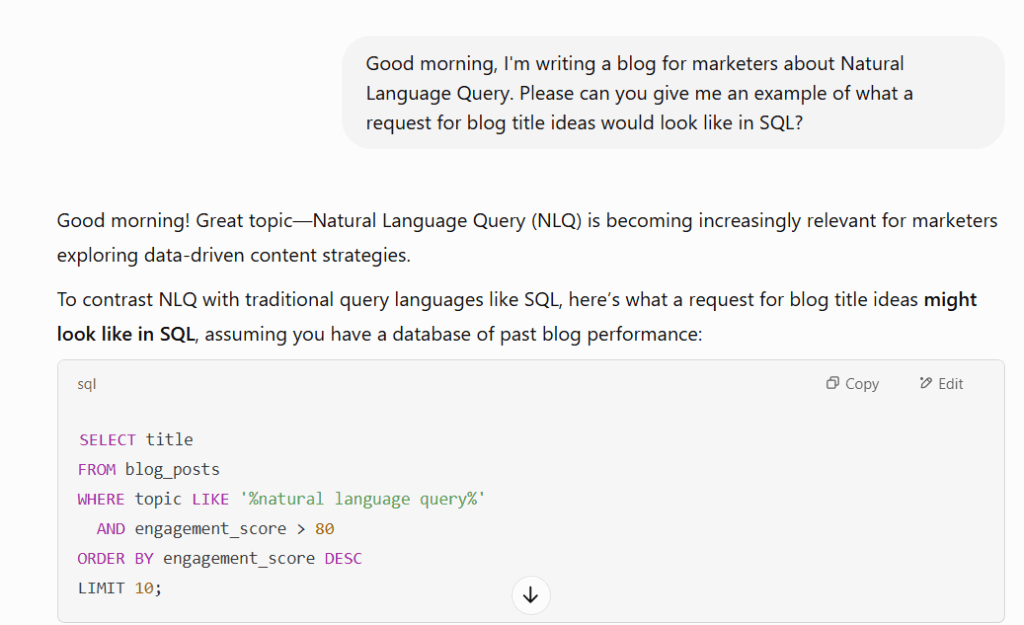Marketing has never been a stranger to a TLA (Three-Letter-Acronym), but the rise of AI means we have more to add to the list. Today’s flavour: NLQ.
NLQ is short for Natural Language Query, and it’s the underappreciated hero of the AI wave. But what is it, and why is it important?
What is Natural Language Query?
Natural Language Query is the reason that tools like ChatGPT and Gemini have exploded in use the way they have. In short, it means the ability to ask AI models questions as if you are talking to another person, rather than in SQL or raw code.
I don’t know SQL, so I asked ChatGPT what a SQL request would look like:

It’s not hideously complicated, but it certainly isn’t as easy as “Please give me 10 title ideas for a blog about Natural Language Query that will appeal to marketers”.
The other difference comes from precision, or the capacity to handle errors. If I made a typo when typing an NLQ query, the AI doesn’t worry about it:

If I were to mistype “blog” as “bog” in the SQL query, I’m going to get an error, as the program will look for the wrong thing.
SQL is great if you can express precisely what you’re looking for in the terms your program already knows. NLQ can handle the ambiguity of language much better. An incorrect SQL query will simply return an error, without guidance as to how to correct it. A badly-phrased NLQ prompt will bring back some sort of result, which you can look at and consider how to rephrase your initial query.
For reporting, NLQ gives marketers what they need
NLQ gives marketers direct, intuitive access to customer behaviour and campaign engagement data without needing to learn SQL or build complex macros.
A marketer can simply ask a question like “Which email campaign had the highest click-through rate last quarter?” and get a clear, structured answer. There is no need for technical translation or waiting on analysts. NLQ puts data directly into the hands of those who need it, at the moment they need it.
In contrast, SQL and macros act as barriers. They require specialist knowledge, take time to create and maintain, and often lead to reliance on data teams. This slows down decisions and creates unnecessary friction. Marketing teams need to act quickly, whether they are tweaking a campaign, identifying trends or spotting drop-offs in performance.
NLQ removes those obstacles, making it easier to work with data, follow instinct, and respond in real time.
Wherever you come across AI in Spotler’s products, they use NLQ. This is the best way to deliver our overall objective of equipping busy marketers with the tools they deserve in order to make an impact. Anyone who wants to learn SQL, we applaud you, but it’s not needed to wield the power of Spotler AI!

